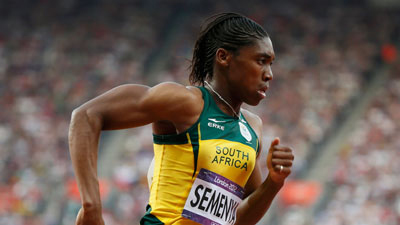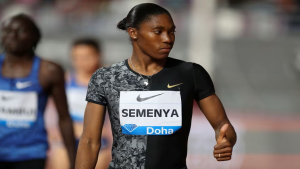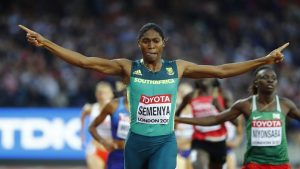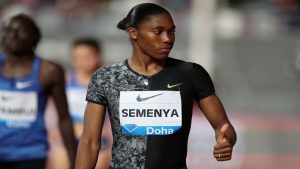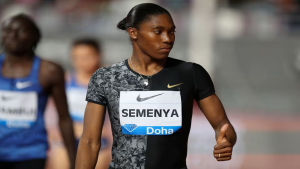Sports Minnister Thokozile Xasa has called for “women’s sporting performance and resultant greatness not to be questioned nor doubted.”
She is speaking in Pretoria ahead of the hearing at the Court of Arbitration for Sport in Lausanne, next week, on the International Association of Athletics Federations (IAAF) attempts to limit the testosterone levels of certain athletes, even if they are naturally produced.
The South African Department of Sport and Athletics South Africa will make representations at the hearing, which some believe as being specifically targeted at 800 metre world champion Caster Semenya.
Xasa says she believes the proposed new regulations targeting Semenya and other African girls are sexist, and called for women to be free to be women in society.
The issue has been described as a war against women in sport.
Banyana Banyana Coach Desiree Ellis says, “It affects all king of sports. She is our hope and she has been our inspiration. Through all the adversity she faced, she came up on top and very strong and we can only draw from that strength and inspiration for Banyana Banyana.”
South African Hockey’s Marissa Langeni says, “We really cannot stand by and watch what is happening to our Golden Girl Caster. So we support national government in its campaign. She’s naturally superior, nothing wrong with that.”
Netball SA CEO’s Blanche de La Guerre argues, “The discrimination against an athlete of that nature, do they realise what it does to her as a person. She’s such a lovely softhearted person, gave all her best. I don’t think it’s fair.”
What the IAAF has been doing to Semenya has been described as one of the worst atrocities against any human. The IAAF has played the testosterone card as if it’s the only way to distinguish male from female.
Sports Minister Tokozile Xasa says, “What is at stake here is far more than the right to participate in a sport. Women’s bodies, their well-being, their ability to earn a livelihood, their very identity, their privacy and sense of safety and belonging in the world, are being questioned. This is a gross violation of internationally accepted standards of human rights law.”
The IAAF keeps on coming up with regulations that seem sexist and discriminatory. The first hyperandrogenism regulation introduced was in 2011.
Consequently, a sprinter from India, Duntee Chand, was suspended from international events after hormone testing reportedly revealed excessive natural levels of testosterone produced by her body.
In 2015, the court of arbitration for sport asked the IAAF to provide evidence that links high levels of testosterone to performance advantage or an unfair advantage. It couldn’t.
In April last year, the IAAF introduced a policy, attempting to regulate women who naturally produce testosterone levels above five nano-moles per litre of blood.
Interestingly, that policy only affects athletes taking part in the 400; 400m hurdles, the 800 and 1500m events of which Caster Semenya dominates the 800m.
This is seen as a direct war against South Africa’s golden girl.


